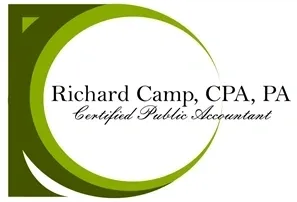Entertainment and travel expenses
Proposed Regs Address Deductibility of Entertainment and Food or Beverage Expenses
The IRS issued proposed regulations which (1) address the elimination of the deduction under Code Sec. 274 for expenditures relating to entertainment, amusement, or recreation activities, and (2) provide guidance for determining whether an activity is of a type generally considered to be entertainment. Taxpayers may rely on the proposed regulations, as well as the guidance in Notice 2018-76, prior to the issuance of final regulations. REG-100814-19.
Background
In general, Code Sec. 274 limits or disallows deductions for certain meal and entertainment expenditures that otherwise would be allowable as an ordinary and necessary trade or business expense. Code Sec. 274 was amended by the Tax Cuts and Jobs Act (TCJA) to revise the rules for deducting expenditures for meals and entertainment, effective for amounts paid or incurred after December 31, 2017. Under Code Sec. 274(n)(1), the deduction for food or beverage expenses generally is limited to 50 percent of the amount that would otherwise be allowable. Prior to the TCJA, under Code Sec. 274(n)(2)(B), expenses for food or beverages that were excludable from employee income as de minimis fringe benefits under Code Sec. 132(e) were not subject to the 50 percent deduction limitation under Code Sec. 274(n)(1) and could be fully deducted. The TCJA repealed Code Sec. 274(n)(2)(B) so that expenses for food or beverages excludable from employee income under Code Sec. 132(e) are subject to the Code Sec. 274(n)(1) deduction limitation unless another exception under Code Sec. 274(n)(2) applies.
Under Code Sec. 274(k)(1), in order for food or beverage expenses to be deductible the food or beverages must not be lavish or extravagant under the circumstances and the taxpayer or an employee of the taxpayer must be present at the furnishing of the food or beverages. However, under Code Sec. 274(e)(2), (3), (4), (7), (8), and (9), there are six exceptions to the limitations on the deduction of food or beverages in Code Sec. 274(k)(1) and Code Sec. 274(n)(1) and the proposed regulations explain how those exceptions apply.
Code Sec. 274(a)(1)(A) generally disallows a deduction for any item with respect to an activity of a type considered to constitute entertainment, amusement, or recreation (entertainment expenditures). However, before the amendment by the TCJA, Code Sec. 274(a)(1)(A) provided exceptions to that disallowance if the taxpayer established that: (1) the item was directly related to the active conduct of the taxpayer’s trade or business (directly related exception), or (2) in the case of an item directly preceding or following a substantial and bona fide business discussion (including business meetings at a convention or otherwise), the item was associated with the active conduct of the taxpayer’s trade or business (business discussion exception). Code Sec. 274(e)(1) through (9) also provides exceptions to the rule in Code Sec. 274(a) that disallows a deduction for entertainment expenditures. The TCJA did not change the application of the Code Sec. 274(e) exceptions to entertainment expenditures.
Richard Camp, CPA, PA blogs and all other multimedia content is provided for informational and educational purposes only and should not be construed as financial tax, accounting, legal, consulting or any other type of advice regarding any specific facts and circumstances, nor should they be construed as advertisements for financial services. Because accounting standards, tax law, and technologies are constantly changing, content in this blog could contain outdated information.
IRS CIRCULAR 230 NOTICE: To ensure compliance with requirements imposed by the IRS, we inform you that any U.S. tax advice contained in this website (or in any attachment) is not intended or written to be used, and cannot be used, for the purpose of (i) avoiding penalties under the Internal Revenue Code or (ii) promoting, marketing or recommending to another party any transaction or matter addressed in this website (or in any attachment).
Richard Camp, CPA, PA blogs and all other multimedia content is provided for informational and educational purposes only and should not be construed as financial tax, accounting, legal, consulting or any other type of advice regarding any specific facts and circumstances, nor should they be construed as advertisements for financial services. Because accounting standards, tax law, and technologies are constantly changing, content in this blog could contain outdated information.
IRS CIRCULAR 230 NOTICE: To ensure compliance with requirements imposed by the IRS, we inform you that any U.S. tax advice contained in this website (or in any attachment) is not intended or written to be used, and cannot be used, for the purpose of (i) avoiding penalties under the Internal Revenue Code or (ii) promoting, marketing or recommending to another party any transaction or matter addressed in this website (or in any attachment).
Richard Camp, CPA, PA blogs and all other multimedia content is provided for informational and educational purposes only and should not be construed as financial tax, accounting, legal, consulting or any other type of advice regarding any specific facts and circumstances, nor should they be construed as advertisements for financial services. Because accounting standards, tax law, and technologies are constantly changing, content in this blog could contain outdated information.
IRS CIRCULAR 230 NOTICE: To ensure compliance with requirements imposed by the IRS, we inform you that any U.S. tax advice contained in this website (or in any attachment) is not intended or written to be used, and cannot be used, for the purpose of (i) avoiding penalties under the Internal Revenue Code or (ii) promoting, marketing or recommending to another party any transaction or matter addressed in this website (or in any attachment).
